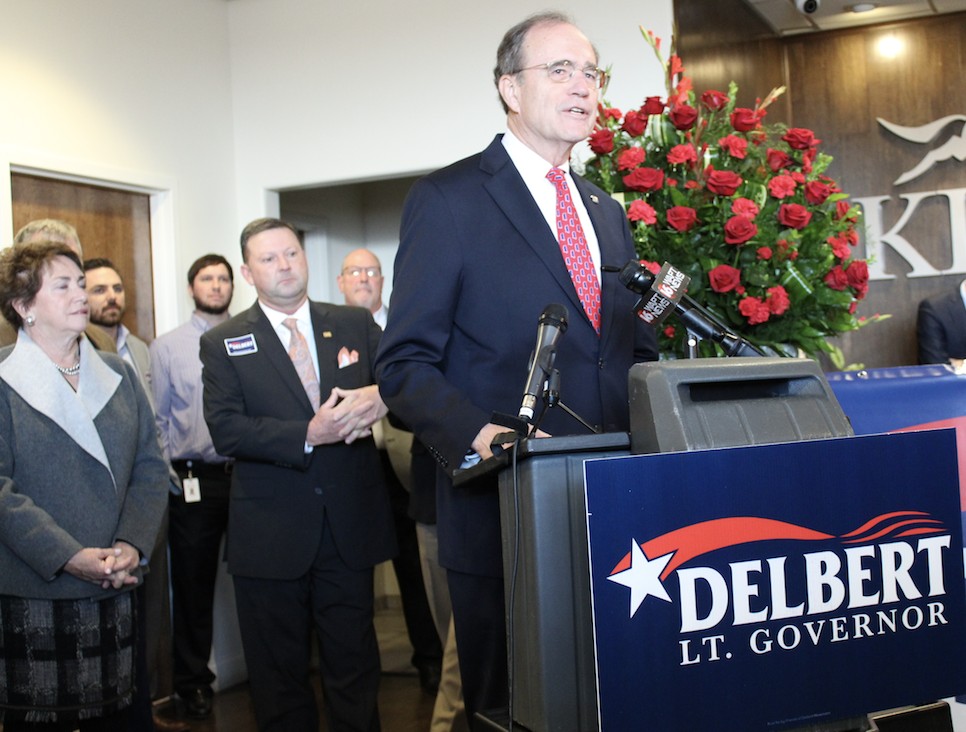Delbert Hosemann will take office in January as Mississippi’s next Lieutenant Governor.
With 90 percent of precincts reporting, Secretary of State Delbert Hosemann has been named the winner in the Lieutenant Governor’s race with almost 61 percent of the vote.
In August, Hosemann won the Republican nomination in a landslide, garnering almost 61 percent of total ballots cast.
“I am proud of the positive, issue-driven campaign we ran, and I am so grateful to voters for instilling their confidence in me. We have real challenges in Mississippi, and our team has concrete plans to address them,” said Hosemann from a watch party in Jackson with his wife, Lynn, and children and grandchildren. “We will not let our foot off the gas and we will not let you down. Now, the real work to make Mississippi an even better place for our children and grandchildren begins.”
In the days leading up to Election Day, Hosemann visited every corner of the State holding events, attending rallies, visiting schools, and engaging with voters. Dozens of staff members, volunteers, and grassroots supporters also reached out to voters on behalf of the campaign. Lynn Hosemann traveled to many Mississippi cities in the final weeks, going door-to-door to businesses on Main Streets.
A slew of organizations endorsed Hosemann for Lieutenant Governor including Mississippi Right to Life, National Right to Life, National Rifle Association, Mississippi Realtors, Mississippi Manufacturers Association, Bully Bloc, Police Benevolent Association, American Subcontractors Association, and others. BIPEC named him “Best for Business.”
Current and former public officials from many different political parties also backed Hosemann’s candidacy including Governor Phil Bryant, Congressman Trent Kelly, Congressman Michael Guest, Congressman Steven Palazzo, Vicksburg Mayor George Flaggs, and former Secretary of State Eric Clark.
As a steadfast conservative who spent most of his career as a businessman in the private sector, Hosemann’s platform touches several major areas centered on growing Mississippi’s economy. These include: refocusing on skills training and increasing the State’s educated workforce; reducing unnecessary regulations and streamlining state government; encouraging small business and start-up growth; shoring up aging infrastructure; and improving access to healthcare and improving health outcomes.




